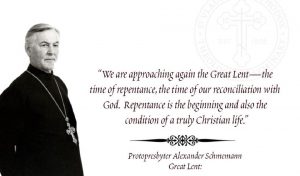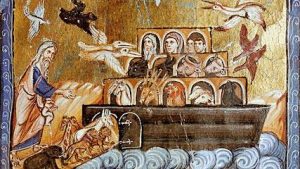 During this week, at Vespers, we read the story of the flood and the salvation of the righteous man Noah and his family. At first, this might seem to be the dark side of God, and on Friday, we heard: “When the Lord saw how great the wickedness of human beings was on earth, and how every desire that their heart conceived was always nothing but evil, the Lord regretted making human beings on the earth, and his heart was grieved. So the Lord said: I will wipe out from the earth the human beings I have created, and not only the human beings, but also the animals and the crawling things and the birds of the air, for I regret that I made them.” The story of the flood may have some historical basis, as a great flood in the Mediterranean basin in pre-history, but the story is iconic. (Noah could not have brought all the animal species on the ark.) The story tells us that the “wages of sin is death” (Romans 6:23).
During this week, at Vespers, we read the story of the flood and the salvation of the righteous man Noah and his family. At first, this might seem to be the dark side of God, and on Friday, we heard: “When the Lord saw how great the wickedness of human beings was on earth, and how every desire that their heart conceived was always nothing but evil, the Lord regretted making human beings on the earth, and his heart was grieved. So the Lord said: I will wipe out from the earth the human beings I have created, and not only the human beings, but also the animals and the crawling things and the birds of the air, for I regret that I made them.” The story of the flood may have some historical basis, as a great flood in the Mediterranean basin in pre-history, but the story is iconic. (Noah could not have brought all the animal species on the ark.) The story tells us that the “wages of sin is death” (Romans 6:23).
Christian faith has seen a positive image in the flood: it is the waters of baptism, which wipes out all sin (pride and rebellion against the divine plan) from the earth. It is these waters which carry us to salvation. On the third Friday, then, we hear: “Then Noah built an altar to the Lord, and choosing from every clean animal and every clean bird, he offered burnt offerings on the altar. When the Lord smelled the sweet odor, the Lord said to himself: Never again will I curse the ground because of human beings, since the desires of the human heart are evil from youth; nor will I ever again strike down every living being, as I have done,” and on Tuesday of the fourth week, the day before Mid-lent, “This is the sign of the covenant that I am making between me and you and every living creature with you for all ages to come: I set my bow in the clouds to serve as a sign of the covenant between me and the earth.” The Great Fast is the coming of the Redeemer.
Meditation by Archpriest David Petras
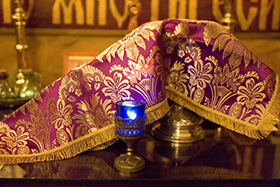 Communing from the Body and Blood of the Master during the period of spiritual combat.
Communing from the Body and Blood of the Master during the period of spiritual combat.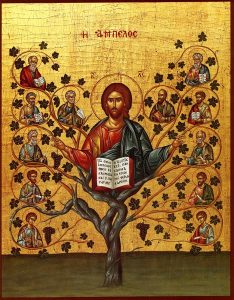 To inspire our prayer today, here are 2 texts from the Liturgy and a reflection on them.
To inspire our prayer today, here are 2 texts from the Liturgy and a reflection on them.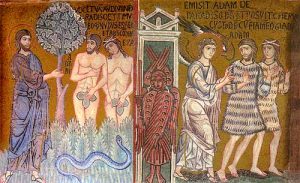 The readings from Genesis on the Fridays of the Great Fast point like an arrow to the covenant made on Good Friday, when our Lord gave his body and blood as a new covenant for the life of the world.
The readings from Genesis on the Fridays of the Great Fast point like an arrow to the covenant made on Good Friday, when our Lord gave his body and blood as a new covenant for the life of the world.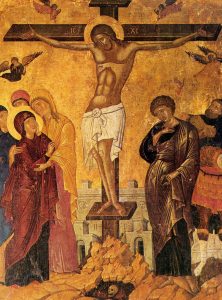 For our prayer today…
For our prayer today…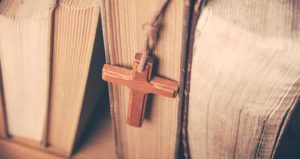 We are at the beginning the season of Great Lent. May I commend to you these titles for your spiritual reading and meditation (listed in no particular order):
We are at the beginning the season of Great Lent. May I commend to you these titles for your spiritual reading and meditation (listed in no particular order):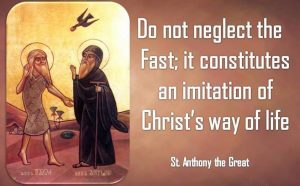 Archpriest David Petras reviews some hallmarks of the liturgical observance and prayer.
Archpriest David Petras reviews some hallmarks of the liturgical observance and prayer.